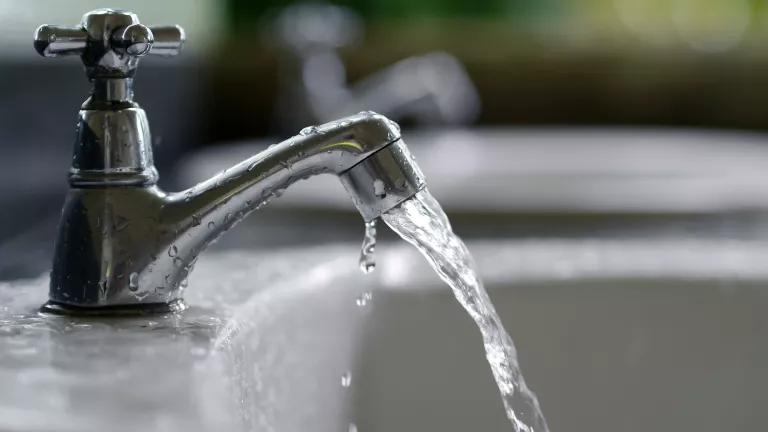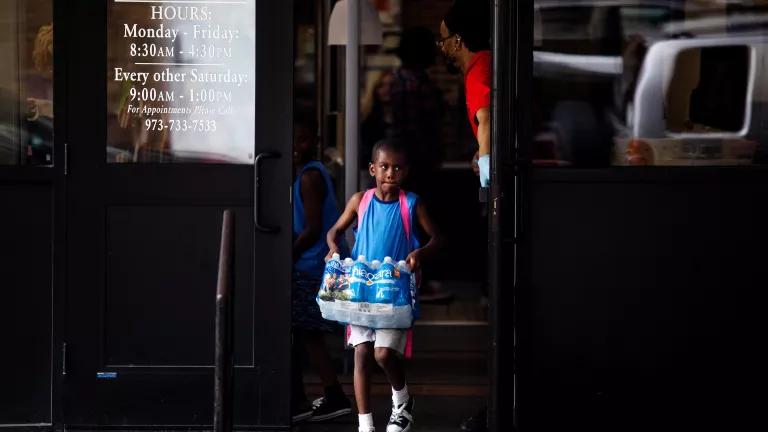Fighting for Safe Drinking Water in Newark
While Newark has made progress to address dangerous lead, the problem continues nationwide, with millions of lead pipes still delivering water to people’s homes.
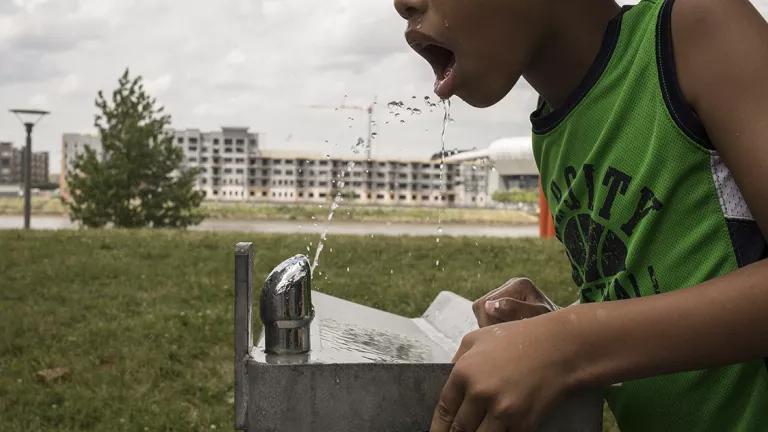
Bryan Anselm for NRDC
Alarmed by high levels of lead in Newark’s drinking water, and after repeated unsuccessful attempts to resolve the issue without litigation, the Newark Education Workers (NEW) Caucus and NRDC filed a citizen suit against the City of Newark and New Jersey state officials in June 2018 to secure safe drinking water for Newark residents. No money damages were sought—just a solution.
There is no safe level of lead exposure. Lead is a potent neurotoxin that has particularly devastating impacts on infants and children. As an organization of public school teachers, NEW Caucus was deeply concerned about the ongoing impacts of elevated lead levels on Newark’s children.
Major warning signs appeared in 2016 in the form of record-high lead levels in the drinking water in Newark schools. In 2017, after the New Jersey Department of Environmental Protection (DEP) required Newark to monitor lead in its drinking water more extensively, Newark reported that lead levels were above the federal action level—an inevitable result of the longtime neglect of the water system that had been identified by Newark’s outside engineering consultants. In 2018 and 2019, Newark’s lead levels rose to some of the highest of any major city in the country. But through the efforts of NEW Caucus and NRDC—and a significant commitment of resources by the city, Essex County, and the state—substantial progress has been made since the NEW Caucus and NRDC filed their lawsuit.
By January 2021, Newark was well on its way to removing over 18,000 lead service lines at no direct cost to residents, in a program that could become a model for other cities nationwide. At the same time, Newark’s new water treatment, designed to minimize corrosion of lead from pipes, has begun to reduce lead levels. The city has also provided at-home water filters to about 40,000 households. In the wake of this progress, NEW Caucus, NRDC, Newark, and the DEP reached a proposed settlement agreement, which a federal court approved on January 26, 2021.
The settlement agreement requires the city to continue its rapid pace of fully replacing lead service lines from the water main pipe to people’s homes. It also requires Newark to continue to provide free water testing to residents, as well as free filters and replacement cartridges to eligible homes during the term of the agreement. Newark must engage in extensive public education to emphasize the importance of residents properly installing, using, and replacing filter cartridges because of the health risks of using expired or improperly installed cartridges.
In light of the enormous economic burden on Newark from the COVID-19 pandemic, NRDC decided not to seek an award of fees and costs it expended during this litigation.
Newark residents can search for their address on the city’s website and find out whether they still have a lead service line and the status of replacement work at home; whether they should be using a water filter and, if so, how to get free replacement cartridges from the city; and how to get free water testing.
While the city has made significant progress, it is important for residents with filters to continue to use them and to make sure they are replacing cartridges as recommended. Residents with lead service lines, as well as those whose lines were replaced, should use filters and make sure to follow the city's instructions for flushing their lines.
Nationwide, an estimated six to ten million lead pipes remain underground, delivering water to people’s homes every day. Communities seeking to increase protections for public health, especially children’s health, should heed Newark’s example and replace all of their lead service lines as quickly as possible.
Related Content
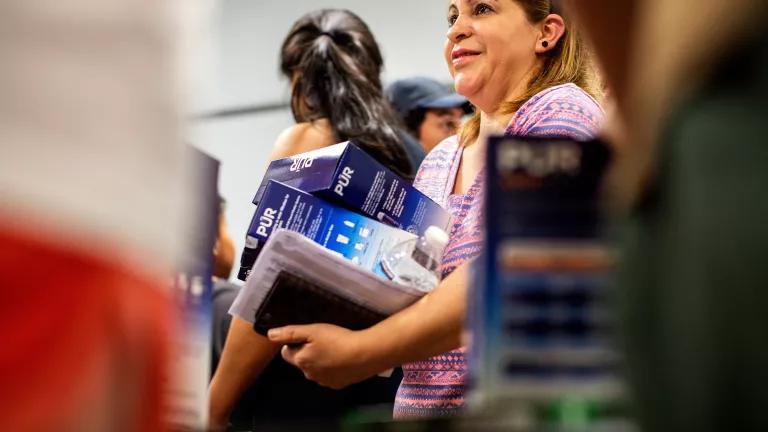
Newark Residents Secure Protections from Lead in Drinking Water
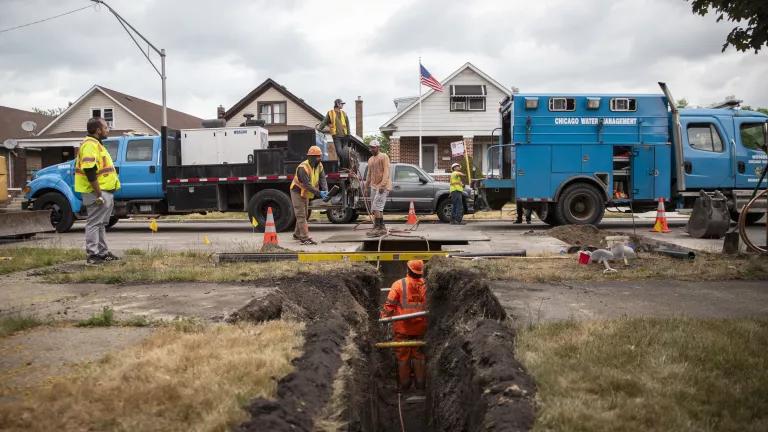
How to Find Out If Your Home Has Lead Service Lines

Can I Use Water Sampling to Identify a Lead Service Line?
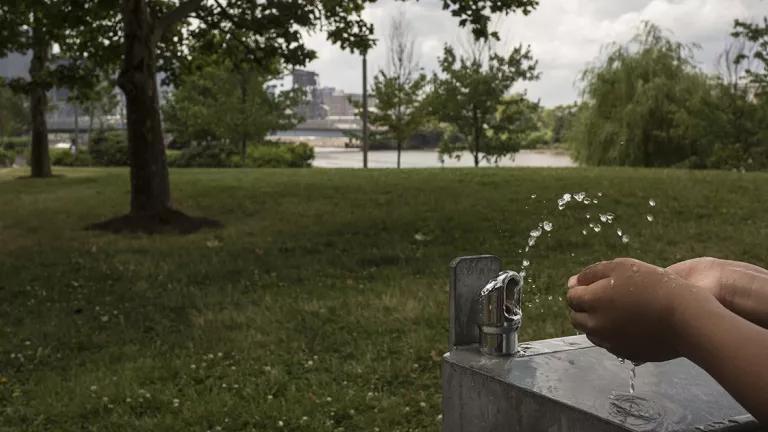
Newark Safe Drinking Water Case Documents
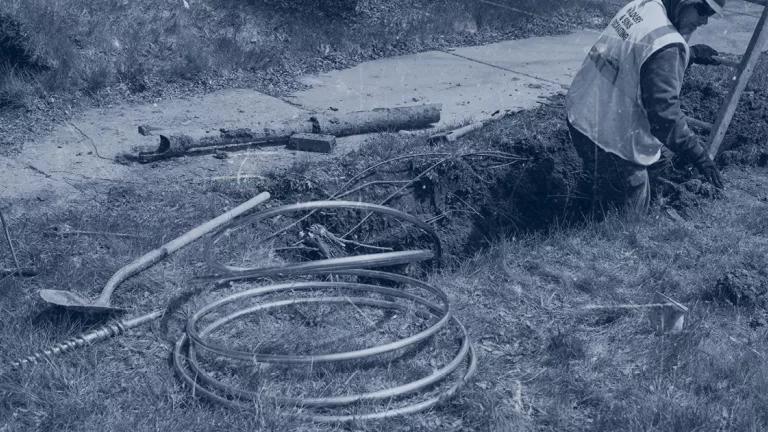
Lead Pipes Are Widespread and Used in Every State
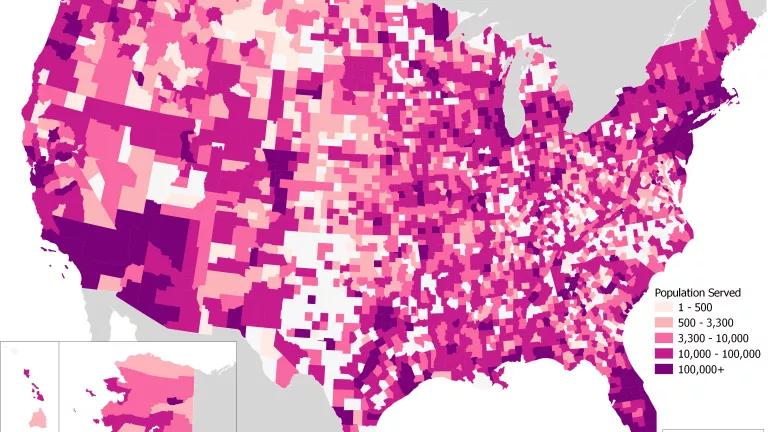
Millions Served by Water Systems Detecting Lead
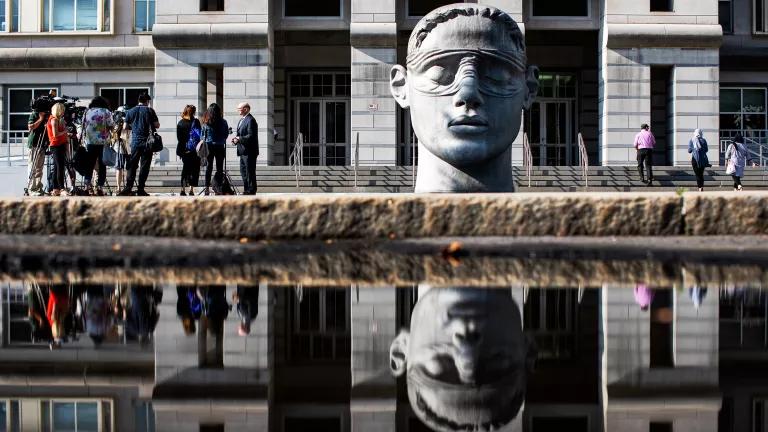
Fighting the Tide of Watered Down Justice
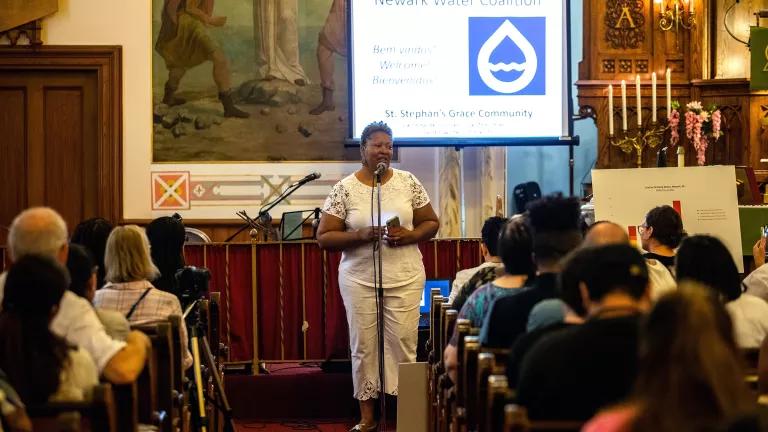
An Environmental Justice Advocate Inspires Others to Become Agents of Change
